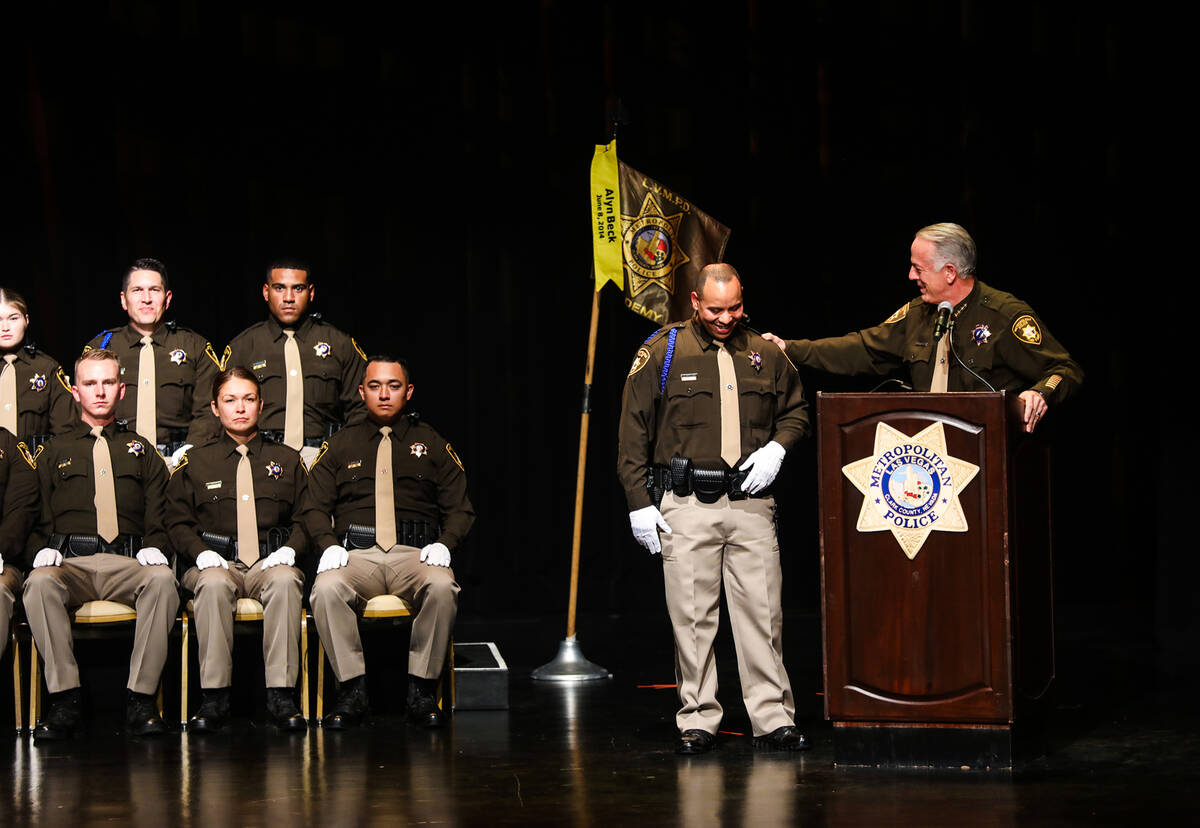VICTOR JOECKS: America’s overlooked policing problem: staffing shortages
Claiming that the police are systemically racist based on isolated incidents of misconduct makes tragic events more likely to occur. That’s because that message has crippled police recruiting.
On Wednesday, Clark County Sheriff Kevin McMahill delivered his State of the Department address. He detailed a major problem. “We started off the year with 300-budgeted unfilled positions,” he said.
That’s a number roughly equivalent to two of Metro’s 10 area commands. A new class of trainees will bring vacancies to under 170. But Metro’s challenges are far from over.
Because of events such as the deaths of George Floyd and Tyre Nichols, “we have a 70 percent drop in the number of people applying to come into our organization,” McMahill said.
This isn’t a Las Vegas problem. McMahill said he was preparing to attend an event with major city chiefs. “All of the talk ahead of that is focused in on recruiting,” he said. “Who wants to come and be a police officer when you can go be a firefighter and never have to deal with any of this stuff?”
If you want to see where this can lead, look at Memphis, Tennessee. That’s where video showed five Black officers beating Nichols, who was also Black, to death. Those officers have been charged with second-degree murder. The race of the officers makes it an awkward fit for the left’s preferred critical-race-theory narrative. That didn’t stop many leftists from painting the police as systemically racist.
Subsequent reporting pointed to a different systemic problem — hiring. Memphis police wanted to grow the force from 2,100 to 2,500. Today, it has fewer than 1,960 officers. To boost the numbers, the department lowered standards, offered signing bonuses and even asked the state for waivers to bring in applicants with criminal records.
“They would allow just pretty much anybody to be a police officer because they just want these numbers,” Alvin Davis, who previously served as the lieutenant in charge of recruiting, told The Associated Press.
Some recruits told Davis they joined “strictly” for the money. Frustration drove Davis to retirement last year. He’s not alone. Memphis lost more than 1,350 officers over the past decade, including more than 300 in the past two years.
One of the officers charged in Nichols’ death appeared to have a past arrest. Another was sued for battering an inmate at a corrections facility. All had fewer than six years experience despite being on a specialized unit.
If it were easier to attract qualified candidates, it’s likely the Nichols tragedy never would have happened. More experienced officers would have been on the specialized unit. Better supervision would have kept newer officers in check. Or maybe some of those officers would never have been hired.
It’s easy to tsk-tsk Memphis for lowering standards. It’s harder to come up with a solution. Memphis’ murder rate went up 60 percent between 2019 and 2021. FBI data shows 88 percent of Memphis’ homicide victims in 2021 were Black. If the homicide rate had stayed at 2019 levels, around 200 more African Americans would still be alive.
Memphis wanted to hire more police to save Black lives. But lowering standards to do so likely played a major role in Nichols’ death.
This is what happens when leftists portray a few outlying and outrageous confrontations as representative of policing as a whole. When society tells young adults the police are racist, fewer people seek the job, which leads to lower quality officers and staffing shortages. That leads to more problematic confrontations, which leads to more calls of racism. That produces even fewer people applying and the cycle repeats.
Memphis is in this doom spiral. To reverse it, leftists and the national media should stop smearing the police as systemically racist.
Contact Victor Joecks at vjoecks@reviewjournal.com or 702-383-4698. Follow @victorjoecks on Twitter.


















